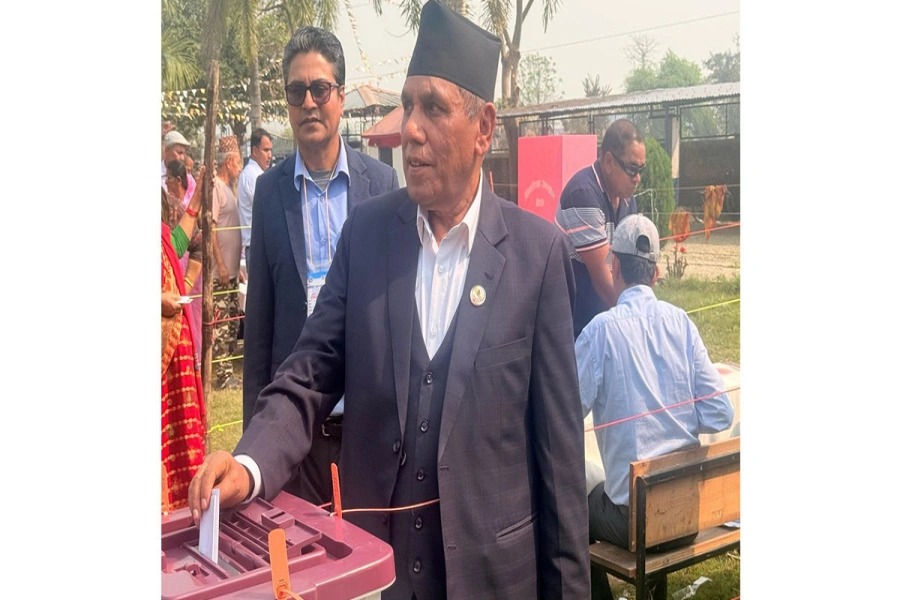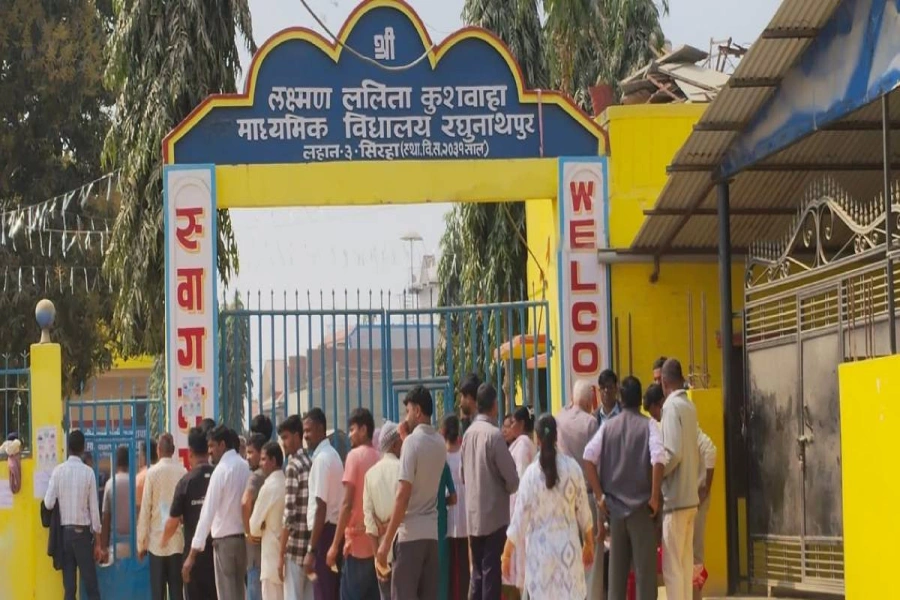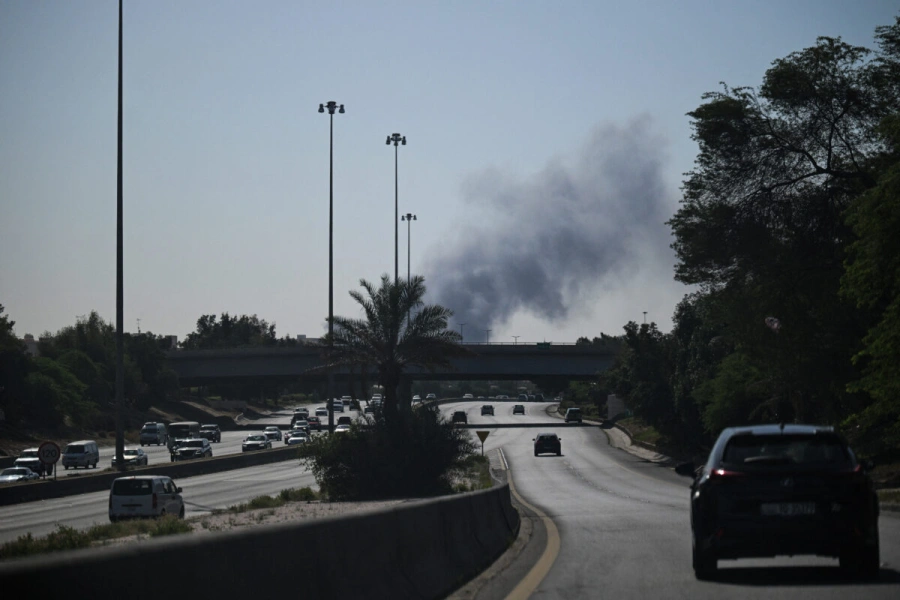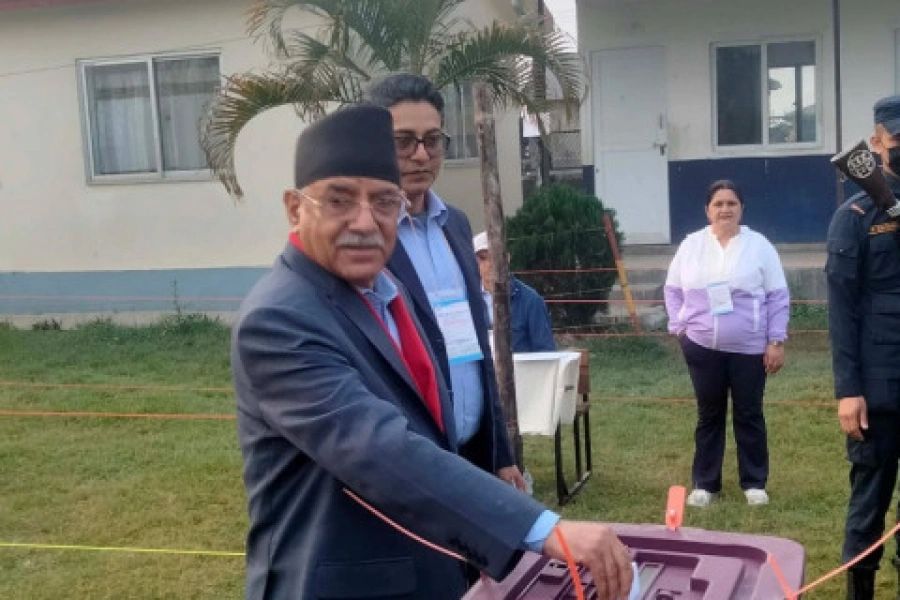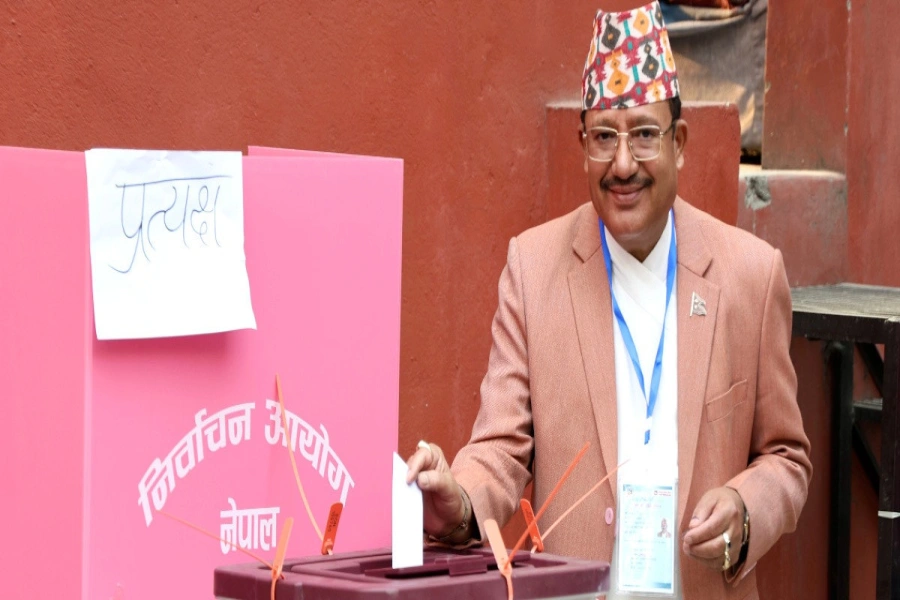KATHMANDU, May 19: Shanti Jirel Pakhrin was in the first month of pregnancy when her husband, Buddhiman Pakhrin, was brutally killed by the then rebel CPN-Maoist on the charge of not providing donation to the party. Pakhrin, the then chairperson of Thulopatal VDC was killed in Syauli Bazaar of Dolakha district in December 2002, seven days after he was abducted.
Since her husband’s murder, Shanti has been continuously raising her voice in all available public forums and the party rank and file, demanding that those involved in the killing of her husband be booked. She filed a complaint at the Truth and Reconciliation Commission (TRC), the body responsible for investigating war-era crimes, after it was established in 2015.
Also, her party, the then CPN-UML, also strongly advocated for ensuring justice to the conflict victims as per international standard even as other two major political parties- Maoist and Nepali Congress — were for opting for reconciliation. Despite her one-and-half decade futile wait for justice, Shanti was hopeful that the TRC, where her case is pending for years, will deliver justice to her by booking Maoist leaders involved in killing her husband.
Her hope for justice, however, is gradually fading as her party merged with the former rebel Maoists to form a powerful communist party this week for the sake of “prosperity and political stability in the country”.
“The Maoist leaders who killed my husband and other leaders are walking around freely. Some of them joined the UML party before the two parties formally united,” said Pakhrin in an interview, adding, “Top leaders in the center forged a unity with the Maoists. So, I see a little chance of getting justice.”
Desperate search for missing girls as nearly 80 dead in Texas f...

In the past, UML was for following international standard while settling war-era crimes citing international practices. And its party cadres working as human rights activists used to lobby for prosecuting the then rulers and rebel Maoists in war-era crimes as their leaders were less involved in rights violation cases. Many believe Nepal Army Colonel Kumar Lama was arrested in the UK on the charge of torturing arrestees in an army barrack based on the information provided by the human rights activists close to the then UML. They had also tried to trap the then Maoist Chairman Pushpa Kamal Dahal when he planned to travel to Australia.
Dahal had later postponed his scheduled visit after knowing all these efforts were made to ask the Australian authorities to arrest him in Australia.
Observers predict UML will now soften its hard stance on war era human rights violations as it has united with the former rebel party.
Like thousands of conflict victims, Bhagiram Chaudhari is also gradually losing the hope of getting justice in the changed political context following the unification between the UML and the Maoists, which had taken opposite stances on ways to settle war-era cases. Chaudhari, a Maoist supporter, believes UML may not take a tough stance in prosecuting those involved in war-era crimes as it used to do in the past in the context of both the parties united into one.
“In the past, UML used to take a tough stance on the issue of transitional justice as Maoists and Congress used to stand together in favor of granting general amnesty to those involved in war-era crimes,” Chaudhari told Republica “After this unification, we are skeptical about justice being ensured.”
Chaudhari’s brother and sister-in-law were arrested by Nepal Army while going to Belbhar from Banibhar of Bardiya in December 2001. Her family members are totally unaware about their whereabouts since then. In Bardiya, 241 people were forcefully disappeared whereas 170 were killed during the war.
“They were Maoists but we have the right to know about their whereabouts. Our right to know about our relatives should not be compromised under any pretext,” said Chaudhari who currently heads the Conflict Victim Common Platform, warning that Nepal would become a failed state if it fails to ensure justice to the conflict victims.
The delay in justice has affected the conflict victims. Soon after signing the peace deal in 2006, both the rebel and parliamentary parties had agreed to resolve the war-era cases within 60 days of signing the accord. But the victims had to wait till 2015 to have transitional mechanisms—TRC and Commission for Investigation on Enforced Disappeared Persons (CIEDP).
The parties had agreed to form such mechanisms only after a top army official was arrested in the UK for rights violation. Yet, they are delaying investigations into war-crimes under various pretexts although they have been extending the terms of the commissions.
TRC and CIEDP have five members each including their chairpersons. As of now, TRC has completed preliminary investigation of 7,000 complaints of the total 63,000 complaints filed at the commission. Over 3,000 complaints are registered at CIEDP whereas 2,200 cases have been verified and forwarded for reparation until now. The commission is yet to begin probes into the remaining cases.
“There are so many hurdles in settling war-era cases. The delay in endorsing the commission’s Act has largely hampered our work,” said Manchala Jha, a member of TRC, adding, “Being a commissioner sometimes I feel suffocation as to how to settle these cases.”
Previously, Maoists and Congress were for letting the commissions handle all war-era cases whereas the UML was dead against this. But many predict UML could change its stance with the changed domestic political dynamics.
“If our leaders backtrack on their stance, then that will be a big betrayal to us. When I lost my husband, my baby was still in my womb. Now, she is 14-years old,” said Pakhrin adding, “How long should I wait for justice?”


